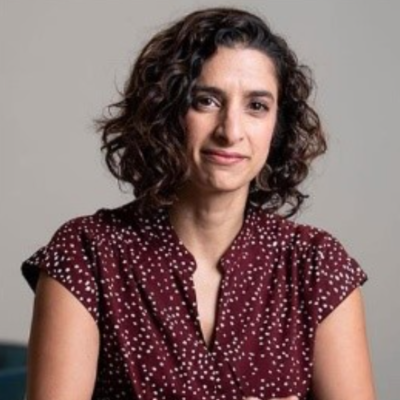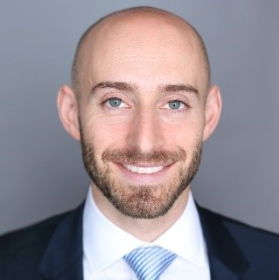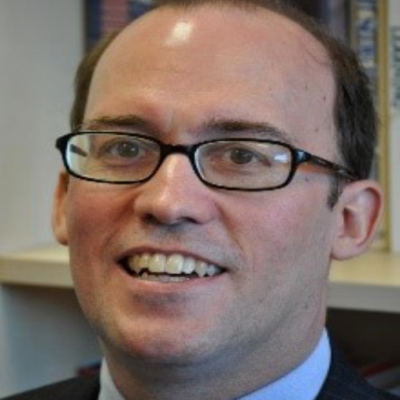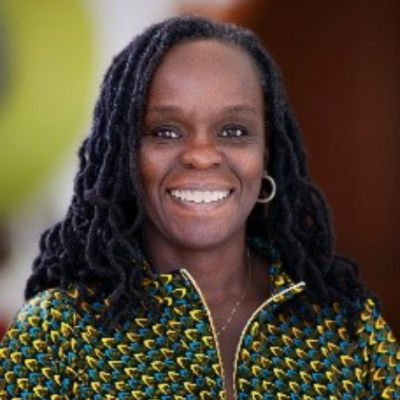Shriver Hall, Homewood Campus
Debate: 7-8:30 PM
For decades, institutions of higher education across the United States have used race-based affirmative action policies to enhance racial diversity on their campuses. However, in their landmark ruling from Students for Fair Admissions v. Harvard, the Supreme Court declared these policies unconstitutional – leaving colleges and universities without what many claim is still a needed tool in their toolkit to ensure diversity among their student bodies.
Those in favor of race-based affirmative action contend that these policies and programs were instituted to rectify a history of race-based exclusion, legally enforced segregation, and quota systems that capped the number of nonwhite or other minority students permitted to enroll at colleges and universities across the country and that approaches that do not specifically account for race are inadequate in addressing these systemic and historic biases.
Meanwhile, those opposed to race-based affirmative action often argue that it is ineffective – benefitting underrepresented minorities from middle- and upper-class backgrounds; thus doing little to address systemic inequality at a societal level –, or even that it is merely another form of discrimination that often pits different underrepresented minorities against one another.
Diverse and more equitable college campuses – and ultimately a more diverse and equitable America – is a worthwhile and meaningful goal, but is race-based affirmative action the best way to achieve those aims despite the Supreme Court’s ruling in SFFA v Harvard?
That is the question that members of the Johns Hopkins Community and the public will be invited to explore in a debate featuring four experts and a mid-debate intervention by an alternative dispute resolution expert who will encourage our debaters to find common ground within and potential pathways forward from their disagreements.
The debaters are Natasha Warikoo, Lenore Stern Professor in the Social Sciences at Tufts University; Jonathan Feingold, an Associate Professor of Law at the Boston University School of Law; Richard Kahlenberg, a nonresident scholar at Georgetown University’s McCourt School of Public Policy; and Mike Gonzalez, the Angeles T. Arredondo E Pluribus Unum Senior Fellow at The Heritage Foundation.
This event will be moderated by Stephanie Shonekan, dean of the College of Arts and Humanities at the University of Maryland, and our alternative dispute resolution expert is Mala Malhotra-Ortiz from the University of Maryland School of Law.
This debate is presented in partnership with the Milton Eisenhower Symposium.
About our Speakers:
 Natasha Warikoo is Lenore Stern Professor in the Humanities and Social Sciences, Department of Sociology, at Tufts University. A former Guggenheim Fellow and high school teacher, Warikoo is an expert on racial and ethnic inequality in education. Warikoo released two books in 2022, Race at the Top: Asian Americans and Whites in Pursuit of the American Dream in Suburban Schools (University of Chicago Press, May 2022) and Is Affirmative Action Fair? The Myth of Equity in College Admissions (Polity Press, 2022). In addition to her academic work, Warikoo is co-chair of the Scholars Strategy Network Boston Chapter and chairs the Sociology of Education Section of the American Sociological Association.
Natasha Warikoo is Lenore Stern Professor in the Humanities and Social Sciences, Department of Sociology, at Tufts University. A former Guggenheim Fellow and high school teacher, Warikoo is an expert on racial and ethnic inequality in education. Warikoo released two books in 2022, Race at the Top: Asian Americans and Whites in Pursuit of the American Dream in Suburban Schools (University of Chicago Press, May 2022) and Is Affirmative Action Fair? The Myth of Equity in College Admissions (Polity Press, 2022). In addition to her academic work, Warikoo is co-chair of the Scholars Strategy Network Boston Chapter and chairs the Sociology of Education Section of the American Sociological Association.
Warikoo was previously associate professor of education at Harvard University. Prior to her academic career she was a teacher in New York City’s public schools, and also spent time working at the US Department of Education. Warikoo completed her PhD in sociology from Harvard University, and BSc and BA in mathematics and philosophy at Brown University. She lives in Cambridge with her husband Ramesh Kumar and their three children.

Jonathan Feingold is an associate professor at Boston University School of Law and host of #RaceClass, an educational podcast that explores the intricacies of race and racism in the United States. Feingold is an expert in affirmative action, critical race theory, education law, and antidiscrimination law. Much of his scholarship explores how antidiscrimination law tends to entrench and legitimize racial inequality. Representative pieces include SFFA v. Harvard: How Affirmative Action Myths Mask White Bonus, Reclaiming Equality: How Regressive Laws Can Advance Progressive Ends, and All (Poor) Lives Matter: How Class-Not-Race Logic Reinscribes Race and Class Privilege.
Before joining BU Law, Feingold clerked for federal judges on the Second Circuit and Central District of California. He also served as special assistant to the vice chancellor for equity, diversity, and inclusion at the University of California, Los Angeles and was a research fellow in BruinX, a research and development team within the Office of Equity, Diversity, and Inclusion. Feingold received his BA from Vassar College and holds a JD from UCLA School of Law, where he specialized in critical race studies.
 Richard D. Kahlenberg is a nonresident scholar at Georgetown University’s McCourt School of Public Policy. The author or editor of 18 books, he has been called “the intellectual father of the economic integration movement” in K–12 schooling and “arguably the nation’s chief proponent of class-based affirmative action in higher education admissions.” He is also an authority on housing segregation, teachers’ unions, charter schools, community colleges, and labor organizing.
Richard D. Kahlenberg is a nonresident scholar at Georgetown University’s McCourt School of Public Policy. The author or editor of 18 books, he has been called “the intellectual father of the economic integration movement” in K–12 schooling and “arguably the nation’s chief proponent of class-based affirmative action in higher education admissions.” He is also an authority on housing segregation, teachers’ unions, charter schools, community colleges, and labor organizing.
An education and housing policy consultant, Kahlenberg is a senior fellow at the Progressive Policy Institute and a professorial lecturer at George Washington University’s Trachtenberg School of Public Policy and Public Administration. His book, The Remedy, was named one of the best books of the year by the Washington Post, and Tough Liberal was named one of the best books written on labor unions by the Wall Street Journal. He serves on the advisory board of the Pell Institute, and the Albert Shanker Institute. He is a graduate of Harvard College and Harvard Law School.
 Mike Gonzalez is the Angeles T. Arredondo E Pluribus Unum Senior Fellow at the Heritage Foundation. He writes on critical race theory, identity politics, diversity, multiculturalism, assimilation, and nationalism, as well as foreign policy in general. He spent close to 20 years as a journalist, 15 of them reporting from Europe, Asia, and Latin America. He left journalism to join the administration of President George W. Bush, where he was speechwriter for Securities and Exchange Commission chairman Christopher Cox before moving on to the State Department’s European Bureau.
Mike Gonzalez is the Angeles T. Arredondo E Pluribus Unum Senior Fellow at the Heritage Foundation. He writes on critical race theory, identity politics, diversity, multiculturalism, assimilation, and nationalism, as well as foreign policy in general. He spent close to 20 years as a journalist, 15 of them reporting from Europe, Asia, and Latin America. He left journalism to join the administration of President George W. Bush, where he was speechwriter for Securities and Exchange Commission chairman Christopher Cox before moving on to the State Department’s European Bureau.
Gonzalez, who joined Heritage in March 2009, became a senior fellow in June 2014 and a chaired fellow in 2019. He is a widely experienced writer and public speaker. Gonzalez holds a bachelor’s degree in communications from Boston’s Emerson College, and a master’s in business administration from Columbia Business School.
Gonzalez has published the following books: BLM: The Making of a New Marxist Revolution, published by Encounter Books in 2021; The Plot to Change America: How Identity Politics is Dividing the Land of the Free, will be published by Encounter Books in 2020. A Race for the Future: How Conservatives Can Break the Liberal Monopoly on Hispanic American, published by Random House in 2014.
Forthcoming Next Year: NextGen Marxists: Their Assault on America and How to Defeat It, Encounter.
 Stephanie Shonekan is professor of ethnomusicology and dean of the College of Arts and Humanities at the University of Maryland. From 2003 to 2011, she was a faculty member at Columbia College Chicago and was also the director of the Black World Studies Program and the associate director of the Cultural Studies Program. From 2011 to 2018, she was a faculty member at the University of Missouri in the Black Studies Department and the School of Music. She became chair of the Black Studies department at the University of Missouri from 2015 to 2018. While at Mizzou, Shonekan created and ran various programs geared towards inclusion and diversity on campus.
Stephanie Shonekan is professor of ethnomusicology and dean of the College of Arts and Humanities at the University of Maryland. From 2003 to 2011, she was a faculty member at Columbia College Chicago and was also the director of the Black World Studies Program and the associate director of the Cultural Studies Program. From 2011 to 2018, she was a faculty member at the University of Missouri in the Black Studies Department and the School of Music. She became chair of the Black Studies department at the University of Missouri from 2015 to 2018. While at Mizzou, Shonekan created and ran various programs geared towards inclusion and diversity on campus.
Shonekan moved to the University of Massachusetts in 2018 as professor and chair of the W.E.B. Du Bois Department of Afro-American Studies. She returned to Mizzou in 2020 as senior associate dean of the College of Arts and Science, before accepting the position at the University of Maryland. Shonekan earned a doctorate in ethnomusicology and folklore with a minor in African American studies in 2003 from Indiana University. She also wrote and produced an award-winning live action short film based on the mother of Fela Anikulapo Kuti, “Lioness of Lisabi.”
 Mala Malhotra-Ortiz leads global diversity, equity, and inclusion efforts for W.L. Gore & Associates, Inc. She is an adjunct law professor at the University of Maryland, Francis King Carey School of Law, and Penn State, Dickinson Law, where she teaches gender/sexuality and the law, counseling and negotiations, and mediation. Malhotra-Ortiz serves as an ADR adviser for FEMA’s Office of Chief Counsel during national disasters. Formerly, she was the head of dispute resolution with the US Air Force and a founding director of the Alternative Dispute Resolution (ADR) Division of the Maryland Court of Special Appeals. She was also an executive appointment in the US Departments of Interior, Justice, and Transportation as a Presidential Management Fellow.
Mala Malhotra-Ortiz leads global diversity, equity, and inclusion efforts for W.L. Gore & Associates, Inc. She is an adjunct law professor at the University of Maryland, Francis King Carey School of Law, and Penn State, Dickinson Law, where she teaches gender/sexuality and the law, counseling and negotiations, and mediation. Malhotra-Ortiz serves as an ADR adviser for FEMA’s Office of Chief Counsel during national disasters. Formerly, she was the head of dispute resolution with the US Air Force and a founding director of the Alternative Dispute Resolution (ADR) Division of the Maryland Court of Special Appeals. She was also an executive appointment in the US Departments of Interior, Justice, and Transportation as a Presidential Management Fellow.
Malhotra-Ortiz is a Carey Law alum; cum laude graduate of global economics and politics from the University of Maryland, College Park; and studied at the American School of International Business in Vevey, Switzerland and at the University of North London, UK. She served in the US Peace Corps, Paraguay, and is fluent in English, Guarani, Hindi, Punjabi, and Spanish.
